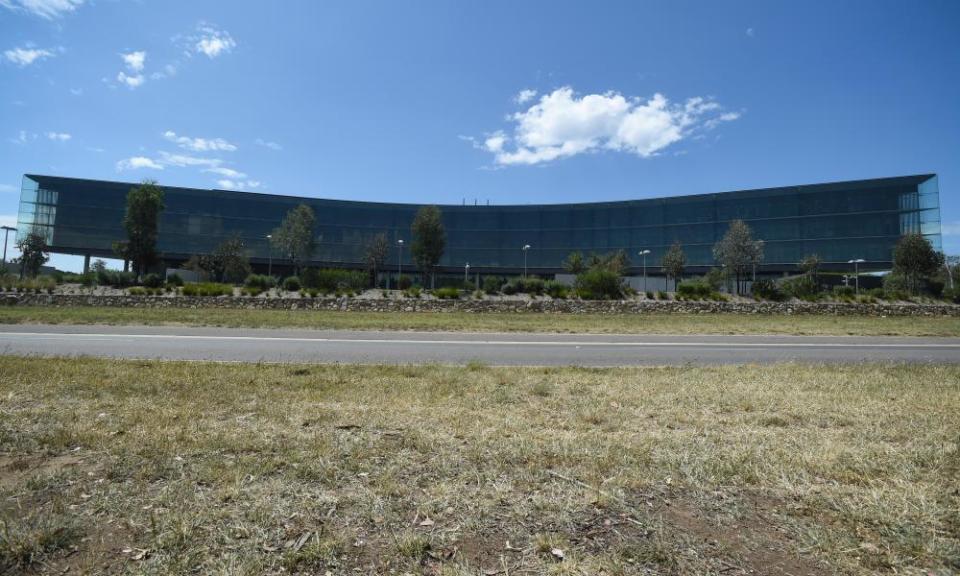Asio to get $1.3bn over 10 years as federal budget puts $1.9bn price tag on national security

Australia’s domestic spy agency Asio will gain an extra $1.3bn in funding over the next decade, with the government claiming the spending is justified by the “more complex security environment”.
And in a sign of the government’s worries about the collapse in the relationship with China, it has earmarked nearly $200m over four years to boost its “trade and strategic” capabilities, including giving exporters advice on how to diversify their export markets.
Related: Coalition tries to woo women with a federal budget that’s all about making amends
The government says the funding will boost Australia’s ability to pursue disputes through the World Trade Organization and expand its international advocacy “in pursuit of a free, open and resilient Indo-Pacific”.
It is understood the government plans to hire 22 additional trade law experts as part of this effort, while increasing the number of diplomats posted abroad by 23, including in the Indo-Pacific. The Department of Foreign Affairs and Trade will also continue a relatively new project to counter disinformation.
“These measures will complement our defence and security investments as we work to shape a regional balance that supports security, prosperity and freedom,” the foreign affairs minister, Marise Payne, and the trade minister, Dan Tehan, said in a statement.
With Australian security agencies increasingly concerned about the threat of cyber-attacks, the government is pledging $42m over two years to help businesses respond to significant intrusions.
The government has grouped the Asio funding with a few other measures under the banner of national security and given them an attention-getting price tag that is the total additional spending over 10 years.
“To keep Australians safe from these threats – whether domestic or foreign – the government is providing an additional $1.9bn over the decade to strengthen our national security, law enforcement and intelligence agencies,” the treasurer, Josh Frydenberg, told parliament.
The biggest measure, according to the budget papers, is an extra $1.3bn over 10 years to the Australian Security Intelligence Organisation “to further boost its ability to protect Australia and Australians from threats to our security”.
This figure includes $414m over the next four years, which the government says comes “on top of already record funding for Asio”.
“This investment will significantly enhance Asio’s capability to identify and respond to threats in a more complex security environment,” the budget papers say.
Asio – which focuses on countering espionage, foreign interference and terrorism – will work with industries “to help respond to challenges posed by rapid technological change”.
The Australian Criminal Intelligence Commission will get $52m to target transnational, serious and organised crime. It will help deliver the so-called national criminal intelligence system, aimed at the “seamless sharing of national policing information” across the country.
The other significant portion of the $1.9bn “national security” package is $465m for Australia’s immigration detention facilities.
But the Coalition has approved only a small increase for oversight of Australia’s intelligence agencies, with an additional $4m over four years to the Office of the Commonwealth Ombudsman and the Office of the Inspector-General of Intelligence and Security.
This will go towards “oversight of the use of surveillance, data access and interception powers” provided under both the 2018 encryption-busting legislation and the still-pending bill that, among other things, allows the Australian Signals Directorate to assist the Australian federal police in going after serious crime.
Related: Migrants forced to wait four years for benefits in Australian budget’s biggest cost-cutting measure
The home affairs minister, Karen Andrews, said $42m would go towards building stronger security defences around infrastructure assets deemed critical. This funding would also “assist critical infrastructure owners and operators respond to significant cyber-attacks”.
Parliament is considering legislation setting obligations on a range of sectors considered to be critical infrastructure or systems, including higher education. Industry groups have been asking the government for help to combat those threats.
Elsewhere in the budget, the government will pour $44m over three years into a fund to boost the skills of cybersecurity professionals in Australia.
Frydenberg said Australia needed to “be prepared for a world that is less stable and more contested” and he pointed to the previously announced plan to spend $270bn on defence capability over 10 years.

 Yahoo Movies
Yahoo Movies 